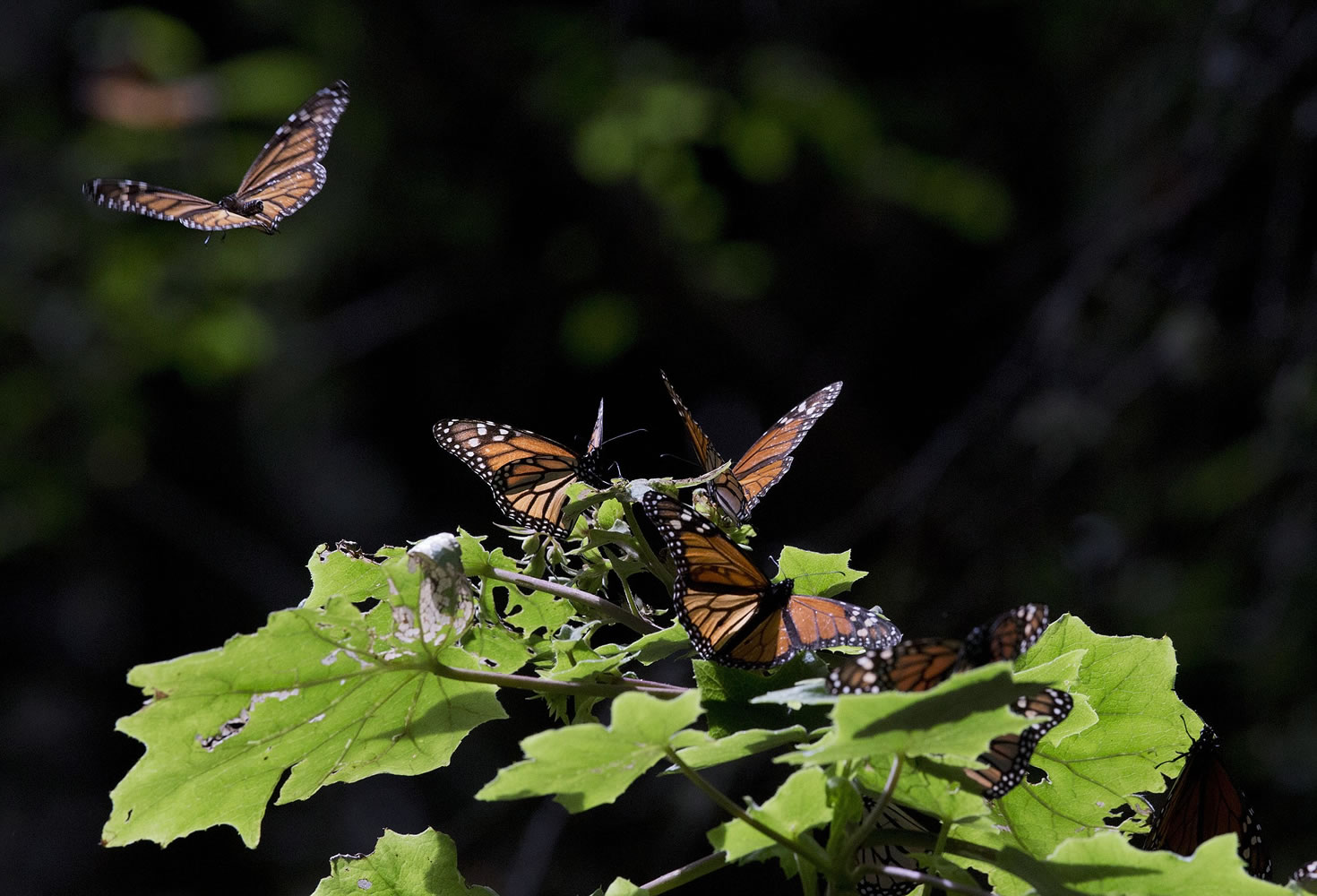ST. LOUIS — Agribusiness Monsanto Co., whose popular weed killer Roundup has been partly blamed by critics for killing monarch butterfly habitat, said Tuesday it is committing $4 million to efforts to stem the worrisome decline of the insects.
The St. Louis company said that it is donating $3.6 million to the National Fish and Wildlife Foundation’s Monarch Butterfly Conservation Fund. The U.S. Fish & Wildlife Service is giving another $1.3 million to the monarch fund. The remaining Monsanto money will be set aside to mirror what other federal agencies plan to offer in the next three years.
Monsanto also intends to contribute $400,000 to experts and groups working on behalf of the butterfly, which is being considered for federal protection because its numbers have plunged by more than 90 percent in the past two decades.
The decline of the monarchs, which are found throughout the continental U.S., worries environmentalists and scientists. Much of the decline is blamed on destruction of habitat that includes milkweed, a plant on which monarchs lay their eggs and that provides the sole source of food for their caterpillars.



